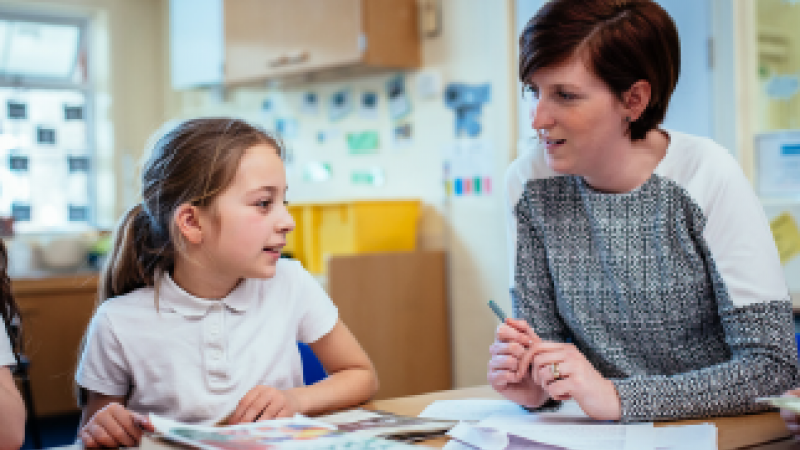When Benjamin Adlard Primary School in Gainsborough received a ‘good’ inspection grading from Ofsted in June 2016, it represented the culmination of 18 months of hard work by staff and children and wide-ranging support of colleagues from across the Kyra Teaching School alliance. Here we document Kyra’s role in contributing to a fabulous story of school improvement and better learning for children.
When Mount Street Academy in Lincoln was first asked to take on a formal role in supporting Benjamin Adlard, Executive Headteacher Marie-Claire Bretherton knew that the process wouldn’t be just simply about ‘one school helping out another’. Mount Street already had a connection with Benjamin Adlard as they are both members of the same multi-academy trust, CfBT Schools Trust (CST). CST were keen to see the school make strides forward and Mount Street was considered to be the perfect partner, not least as the school is a National Support School – a national designation for schools delivering external ‘whole school’ support to other schools in need of significant improvement. However, it has been Mount Street’s ability to draw on the skills and capacity of teachers and leaders from across Lincolnshire, through the Kyra alliance, that has made the transformation at Benjamin Adlard’s possible.
To find out more read the full Case Study........
“the school has received excellent support from the Kyra Teaching School Alliance. While this support has been very intense and ‘hands on’ when necessary, leaders from across the alliance have worked with senior and middle leaders to develop their skills and the school’s capacity to improve from within.”
Key learning points:
- School improvement is not transactional; it is based on long-term partnerships and a shared culture where professionals are committed to one another’s improvement;
- School improvement requires us to go back to first principles, to ask ‘why’ we do what we do, ‘how’ we should do it, and ‘what’ we need to achieve it.; We must not justify anything on the basis that ‘we have always done it this way.’
- School improvement requires thorough diagnosis of the issues at an early stage. However, this is not enough in itself to achieve improvement. It also requires us to access and draw upon those with the key skills and capacity to act on those identified needs. Being part of a wider alliance of experts and commissioning those experts to provide coaching and achieve cultural change is key to improvement;
- School improvement should not be ‘done to’. Experts should work with schools with a strong sense of ‘professional partnership’. Those receiving support need to be able to feel vulnerable, to confront their weaknesses, and to be confident to ask for help;
- Every school improvement project should have very clear targets and oversight. We must able to recognise success at each stage of improvement and be able to identify, at an early stage, where improvement is not taking place.
- Ensure the headteacher / person responsible has good mentoring support from someone who has overcome similar challenging circumstances. Allow that relationship to be one of ‘critical friend’ – ensuring it is separate from any relationship involving formal accountability.


